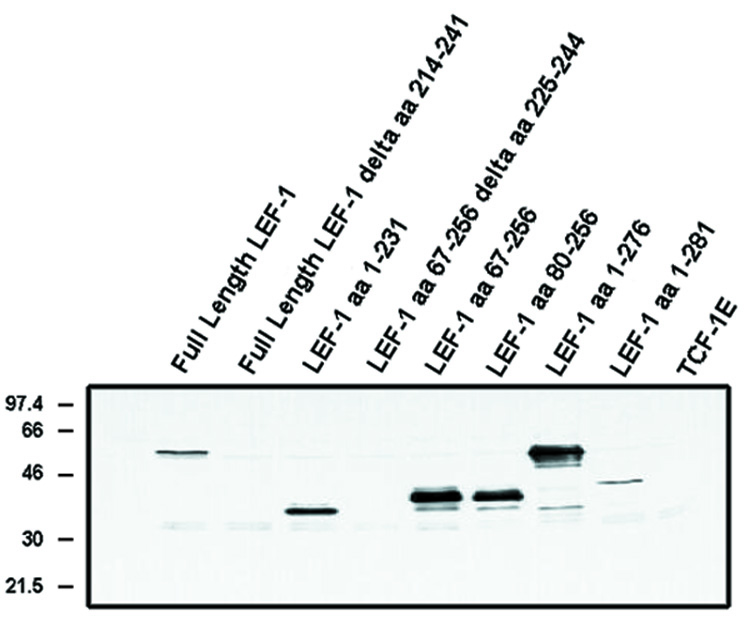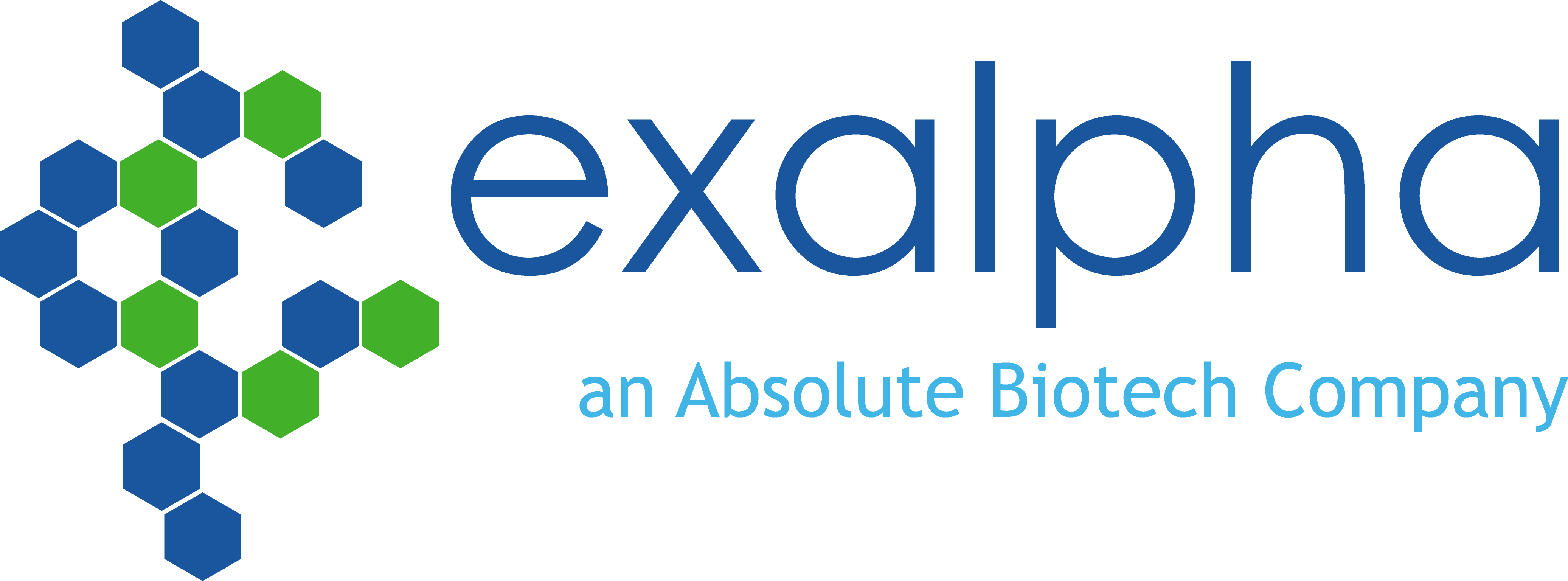Catalogue

Mouse anti Human LEF-1 alternate exon
Catalog number: X1075M$335.00
Add To Cart| Clone | 1C3 |
| Isotype | IgG1 |
| Product Type |
Monoclonal Antibody |
| Units | 100 µg |
| Host | Mouse |
| Species Reactivity |
Human |
| Application |
Western Blotting |
Background
Lymphoid Enhancer Factor-1 (LEF-1) is an HMG 1/2-like DNA binding/bending protein and is a member of the LEF/TCF transcription factor family. There are four LEF/TCF family members in mammalian systems (LEF-1, TCF-1, TCF-3 and TCF-4), and orthologs to these factors have been identified in many different species. LEF/TCFs are downstream mediators of Wnt/Wingless signals. Wnt signaling drives cell polarity, cell fate and cell growth decisions in embryonic tissues and in post-natal tissues that continue to develop from mitotically active stem cell precursors. Misregulation of Wnt signaling is also implicated as a root cause of many different cancers, such as colon cancer, melanoma, breast cancer, prostate cancer and others. This antibody is specific for an epitope between a.a. 227-231. This sequence lies within the context dependent activation domain of LEF-1 and appears to be an alternate splice variant exon of the LEF-1 gene
Synonyms: Mouse Anti Lef-1, Lymphoid Enhancer Factor 1
Source
Immunogen: Recombinant full-length LEF-1 protein
Product
Product Form: Unconjugated
Formulation: Provided as solution in phosphate buffered saline with 0.08% sodium azide
Purification Method: Protein A/G Chromatography
Concentration: See vial for concentration
Applications
Detect LEF-1 protein containing the alternately spliced exon between amino acids 212-241 by Western blot at 1-5 µg/ml. Optimal concentration should be evaluated by serial dilutions.
Functional Analysis: Western Blotting
Storage
Product should be stored at -20°C. Aliquot to avoid freeze/thaw cycles
Product Stability: See expiration date on vial
Shipping Conditions: Ship at ambient temperature, freeze upon arrival
Caution
This product is intended FOR RESEARCH USE ONLY, and FOR TESTS IN VITRO, not for use in diagnostic or therapeutic procedures involving humans or animals. It may contain hazardous ingredients. Please refer to the Safety Data Sheets (SDS) for additional information and proper handling procedures. Dispose product remainders according to local regulations.This datasheet is as accurate as reasonably achievable, but our company accepts no liability for any inaccuracies or omissions in this information.
References
1. Riese, J., et al., LEF-1, a nuclear factor coordinating signaling inputs from wingless and decapentaplegic. Cell 1997, 88, 777-787
2. Giese, K., et al. Functional analysis of DNA bending and unwinding by the high mobility group domain of LEF-1. Proc. Natl. Acad. Sci. USA 1997, 94, 12845-12850
3. Behrens, J., et al. Functional interaction of beta-catenin with the transcription factor LEF-1. Nature 1996, 382, 638-642
4. Giese, K. and Grosschedl, R. LEF-1 contains an activation domain that stimulates transcription only in a specific context of factor-binding sites. EMBO J. 1993, 12, 4667-4676
5. Hovanes, K., et al., The human LEF-1 gene contains a promoter preferentially active in lymphocytes and encodes multiple isoforms derived from alternative splicing. Nucleic Acids Res. 2000, 28, 1994-2003
Safety Datasheet(s) for this product:
| EA_Sodium Azide |

|
"Western blot analysis using LEF-1 (alternate exon) antibody (Cat. No. X1075M) on Cos cells transfected with the indicated proteins." |

"Western blot analysis using LEF-1 (alternate exon) antibody (Cat. No. X1075M) on Cos cells transfected with the indicated proteins."
